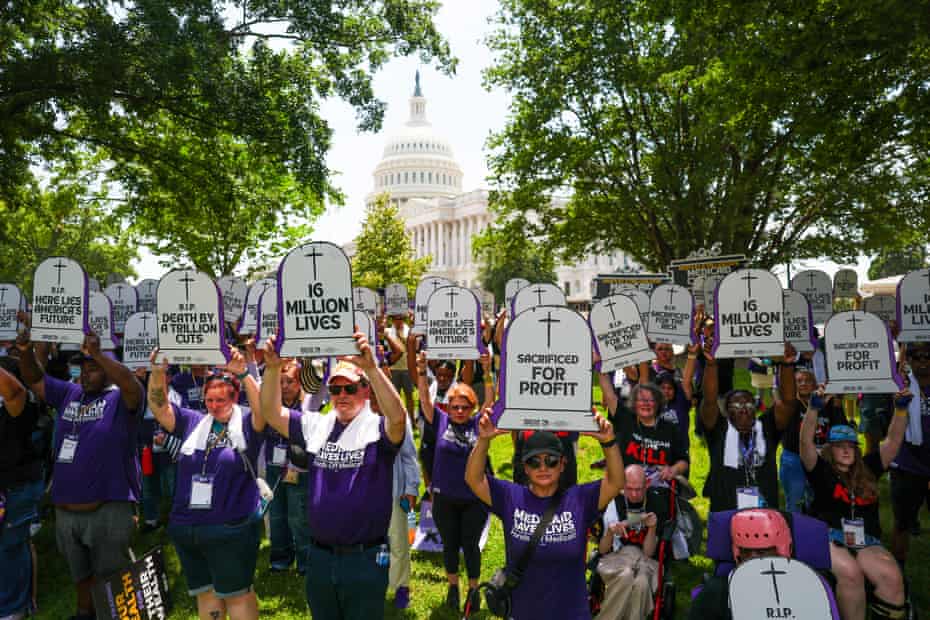This Saturday, more than 2,700 events across the United States will mark the nationwide “No Kings” protests, aimed at expressing public concern over the Trump administration’s policies. From Chicago to Los Angeles and New York, millions of Americans are expected to take to the streets, advocating for workers’ rights, healthcare access, and fair treatment of immigrant communities.
For 75-year-old James Phipps of Chicago, recovery from a recent colon cancer surgery will not stop him from joining the demonstration. “I have a burning desire to be part of the protest because that’s all I’ve done all my life,” Phipps said. Born in Marks, Mississippi, Phipps was an activist from age 13, working to racially integrate his local high school and participating with the Student Nonviolent Coordinating Committee. By 15, he joined the Mississippi Freedom Labor Union (MFLU), organizing sharecroppers who earned just 30 cents an hour under harsh conditions.
“They were working in the hot sun for ten hours a day, making $3 for a day’s labor,” he recalled. “It broke their backs and necks. They had no medical care.” Phipps emphasized that these historic struggles resonate with current concerns, particularly regarding the Trump administration’s immigration enforcement and healthcare policies.
Phipps, now employed in administrative support for Cook County and a member of SEIU Local 73, said aggressive ICE raids in Chicago have alarmed him. “There’s no reason to take people out of their homes after they’ve lived here for decades,” he said. “My Mexican neighbors lived next door to me for 41 years. We shared life, celebrated together, and supported each other. That sense of community is being threatened today.”
He also drew parallels between the experiences of Mexican Americans and other people of color today and the struggles he witnessed growing up under Jim Crow laws in Mississippi. “Back then, confronting discrimination could get you lynched or left in a river,” he said. “I see echoes of that now.”
Labor unions are central to the protests, with the Service Employees International Union (SEIU) and the American Federation of Teachers (AFT) leading organizing efforts. “Unions understand that a voice at work creates power for regular people, and a voice in democracy creates power for society,” said Randi Weingarten, president of the AFT. “Freedom does not come without a voice, and unions are standing with our members to ensure it.”
The protests come amid rising frustration over Medicaid cuts, expiring health insurance subsidies, and skyrocketing costs for basic necessities. A continuing federal government shutdown has exacerbated tensions, with Democrats demanding that Republicans address the issue and extend subsidies to prevent millions from losing coverage.
Jaime Contreras, executive vice-president of SEIU 32 BJ, representing 185,000 service workers on the East Coast, criticized the labeling of peaceful protesters as “terrorists” while January 6 rioters were called “patriots.” “America belongs to the people, to working people—not to billionaires or politicians acting like kings,” he said.
Weingarten tied the protests to the country’s founding principles. “Our founders said, ‘We don’t want kings.’ Today, Americans are reaffirming that ideal. We may have made changes over centuries, but the core idea—that power belongs to the people—remains.”
Despite criticism from prominent Republicans, who have dismissed the rallies as “hate-America” events, organizers maintain that the protests are about holding government accountable and ensuring equality and justice. “These events are about expressing frustration over the government’s failure to address soaring grocery and healthcare prices,” Weingarten said. “We want the promise of America to be real for everyone, not just a few.”
Saturday’s No Kings demonstrations will include marches, rallies, and community gatherings across all 50 states, with unions providing logistical support to ensure safety and coordination. The events underscore the power of collective action and the continued role of grassroots activism in American democracy.
“People have the right to be heard, to demand fairness and accountability,” Phipps said. “The real threat to this country isn’t peaceful protesters—it’s politicians shutting down government to protect corporate greed.”
As millions take to the streets, the No Kings protests are shaping up to be a historic display of citizen activism, emphasizing that America’s strength lies not in the power of a few but in the collective voice of its people.

